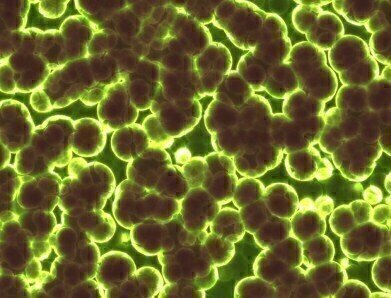Air Clean Up
Does Air Pollution Aid Drug-Resistant Bacteria?
Apr 16 2017
A new study undertaken by the University of Leicester has found that air pollution could contribute to the resilience of certain types of bacteria, thus rendering antibiotics less effective in neutralising them.
The report, which was a collaborative effort between different disciplines, concentrated on how bacteria living in our bodies (specifically, in our nose, mouth, throat and respiratory tract) are affected by air pollution. It’s the first time that a direct link has been drawn between pollution and the resistance of bacteria to treatment and to our immune systems.
Black carbon the principle culprit
The investigation focused primarily on black carbon, a key component of air pollution, and how it affected two known human pathogens, Staphylococcus aureus and Streptococcus pneumoniae. Black carbon is created through the combustion of fuel sources such as biofuels, biomass and diesel. Recently, a new monitoring system was launched to monitor black carbon concentrations in and around London.
Both of the pathogens named above are leading causes of respiratory ailments such as pneumonia, and the study found that black carbon reacted with the pathogens inside our bodies to make them more resistant to pharmaceutical treatment. What’s more, it was found that the latter pathogen was also spread further down the respiratory tract through its interaction with black carbon.
The research, which was published in the journal Environmental Microbiology, is an important milestone in our understanding of how air pollution can not only cause damage to the body, but also fortify other harmful contaminants such as the pathogens mentioned above.
Greater understanding the key
As we learn more about how air pollution affects human health, we become ever-better equipped to deal with the challenges that poor air quality poses – not to mention armed with more and more reasons to address the situation with urgency.
“This work increases our understanding of how air pollution affects human health. It shows that the bacteria which cause respiratory infections are affected by air pollution, possibly increasing the risk of infection and the effectiveness of antibiotic treatment of these illnesses,” said Dr Julie Morrissey, lead author on the paper.
“Our research could initiate an entirely new understanding of how air pollution affects human health. It will lead to enhancement of research to understand how air pollution leads to severe respiratory problems and perturbs the environmental cycles essential for life.”
Action must be taken now
The UK regularly falls afoul of European restrictions on air quality, with London just one of 16 zones throughout the nation that received a “final warning” from the European Commission last year. Though certain directives have been introduced to try and alleviate the air quality crisis experienced in London and other major metropolises, an estimated 40,000 Britons die prematurely from air pollution every year.
Professor Paul Monks, who is head of the University’s College of Science and Engineering, said he hoped the study would prompt action on a collective and an individual level.
“The lead investigators have brought together their expertise in genetics, microbiology and air pollution chemistry to provide truly multidisciplinary ground-breaking insights,” he said. “This research has significant potential to initiate a global research effort to understand a hitherto unknown effect of air pollution and provide significant additional impetus to the control of pollution.”
Events
Apr 22 2024 Hannover, Germany
Apr 23 2024 Kuala Lumpur, Malaysia
Apr 24 2024 Sao Paulo, Brasil
May 05 2024 Seville, Spain
May 13 2024 Munich, Germany














